Mercy Home’s Founding Fathers
Learn about the beginning of Mercy Home for Boys & Girls and our founding fathers who saw a need for...
March 18, 2024
January 16, 2015
The federal holiday honoring the life and legacy of Dr. Martin Luther King Jr. was signed into law in 1983. But the struggle for a federal holiday dates back to 1968 and the immediate aftermath of King’s murder in Memphis, Tennessee on April 4th.
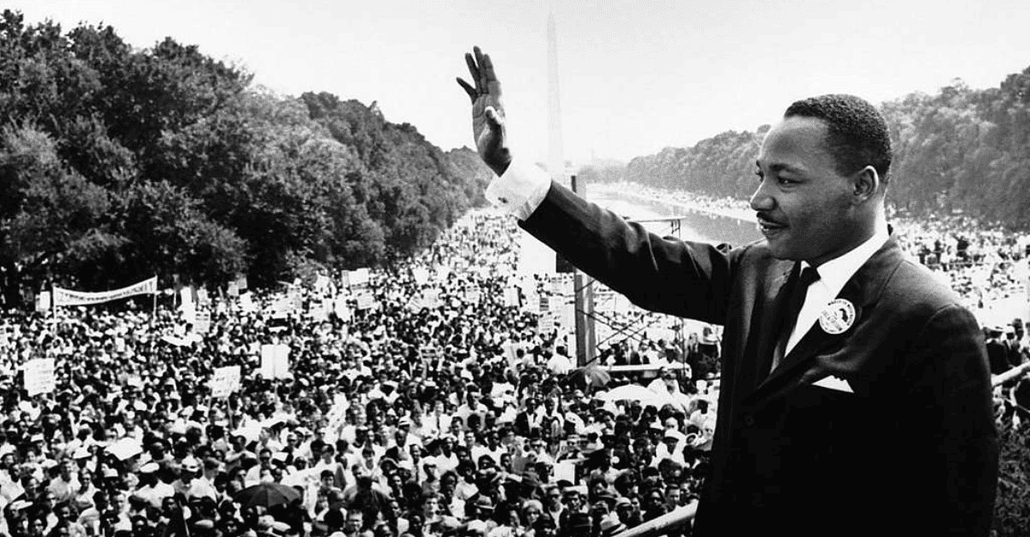
Four days after the civil rights leader’s assassination, U.S. Rep. John Conyers proposed a resolution to establish a federal holiday and after 15 years of dogged persistence by many in and beyond the halls of Congress, it was finally signed into law in November 1983. Yet it wasn’t until the year 2000 that it was recognized by all 50 states.
In 1994, Congress passed the Martin Luther King Day of Service Act, making Martin Luther King Jr. Day the first federal holiday officially dedicated to planning and performing acts of service. The legislation encouraged Americans to make the third Monday in January “a day on, not a day off.”
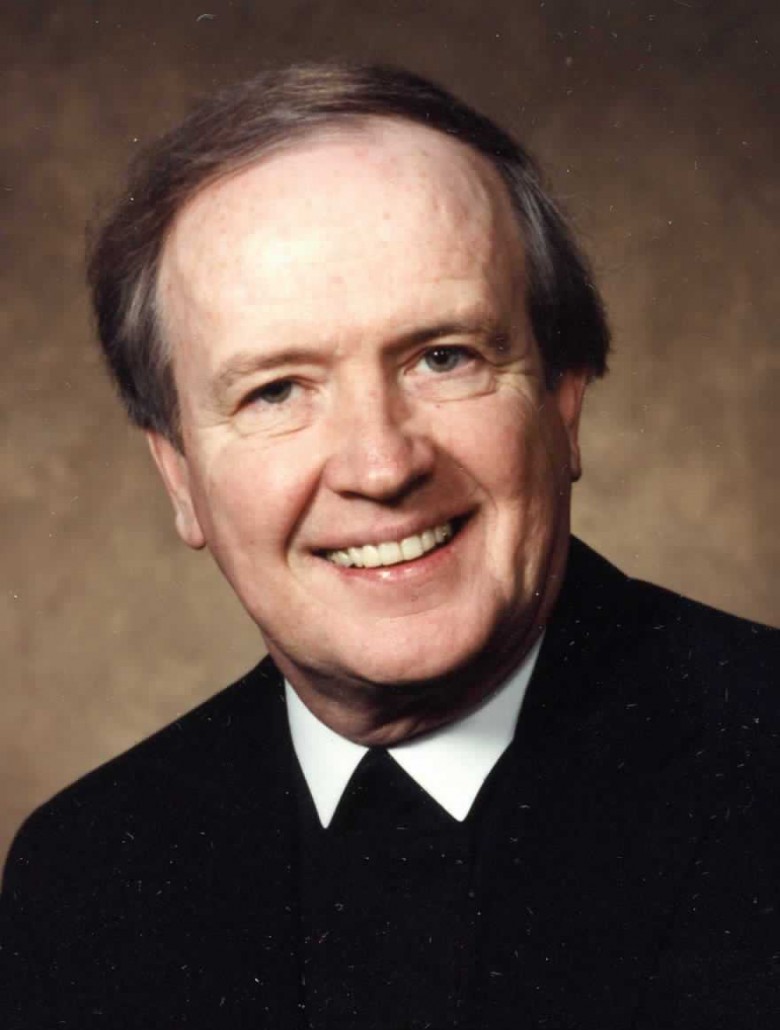
Accordingly, Americans honor the holiday in a diverse ways, like volunteering in their communities, participating in discussions or workshops on topics related to justice, or just by privately reflecting and learning.
Br. Paul McDonough, who coordinates services for families at Mercy Home, has always preferred to honor Dr. King’s legacy by reaching out far beyond the comfort of the everyday and listen. And these choices have informed his life’s work of service to others.
For years, McDonough spent the holiday traveling roughly 300 miles from Chicago to St. Louis to attend a service at the Old Courthouse where participants would reflect on the slain civil rights leader’s life and legacy. “We need constant reminders,”McDonough said as he thought back on the ways that Dr. King’s example influenced his own life when he was a young college graduate in the early 1960s. It was King’s moral courage and clarity that moved McDonough to re-examine his values in light of the unequal treatment of African Americans and to work for justice.
When King spoke, McDonough listened. “There’s a moment, in social justice, where you say to yourself, ‘you know, I’ve held this position for so long−but they’re right,” McDonough said. The Cincinnati native added that King’s message on behalf of marginalized people both at home and abroad was an influence on his own decision to enter religious life. “I felt that I had to do something more to make the world a little better.”
McDonough saw that the late civil rights leader had the singular ability to move this country’s population, its politicians, and its institutions beyond their comfort zones and confront the status quo on behalf of people who would no longer wait silently for the freedom and equality that was already enshrined in our constitution. King’s 1963 Letter from a Birmingham Jail, for example, famously challenged religious leaders who had been sympathetic, but who had urged him to keep the cause in the courtroom and out of the streets. To those who had called the civil disobedience for which he was arrested “unwise and untimely,” King replied, “justice too long delayed is justice denied.”
In one of the most acclaimed treatises of the Civil Rights movement, King said he had come to Birmingham from Atlanta to fight segregation because “Injustice anywhere is a threat to justice everywhere. We are caught in an inescapable network of mutuality, tied in a single garment of destiny. Whatever affects one directly affects all indirectly.”
King called for direct action in the Birmingham Campaign that year, which heightened national and international attention for the movement to secure equal rights for African Americans. As he wrote in the letter, “Human progress never rolls in on wheels of inevitability; it comes through the tireless efforts of men willing to be co-workers with God.”
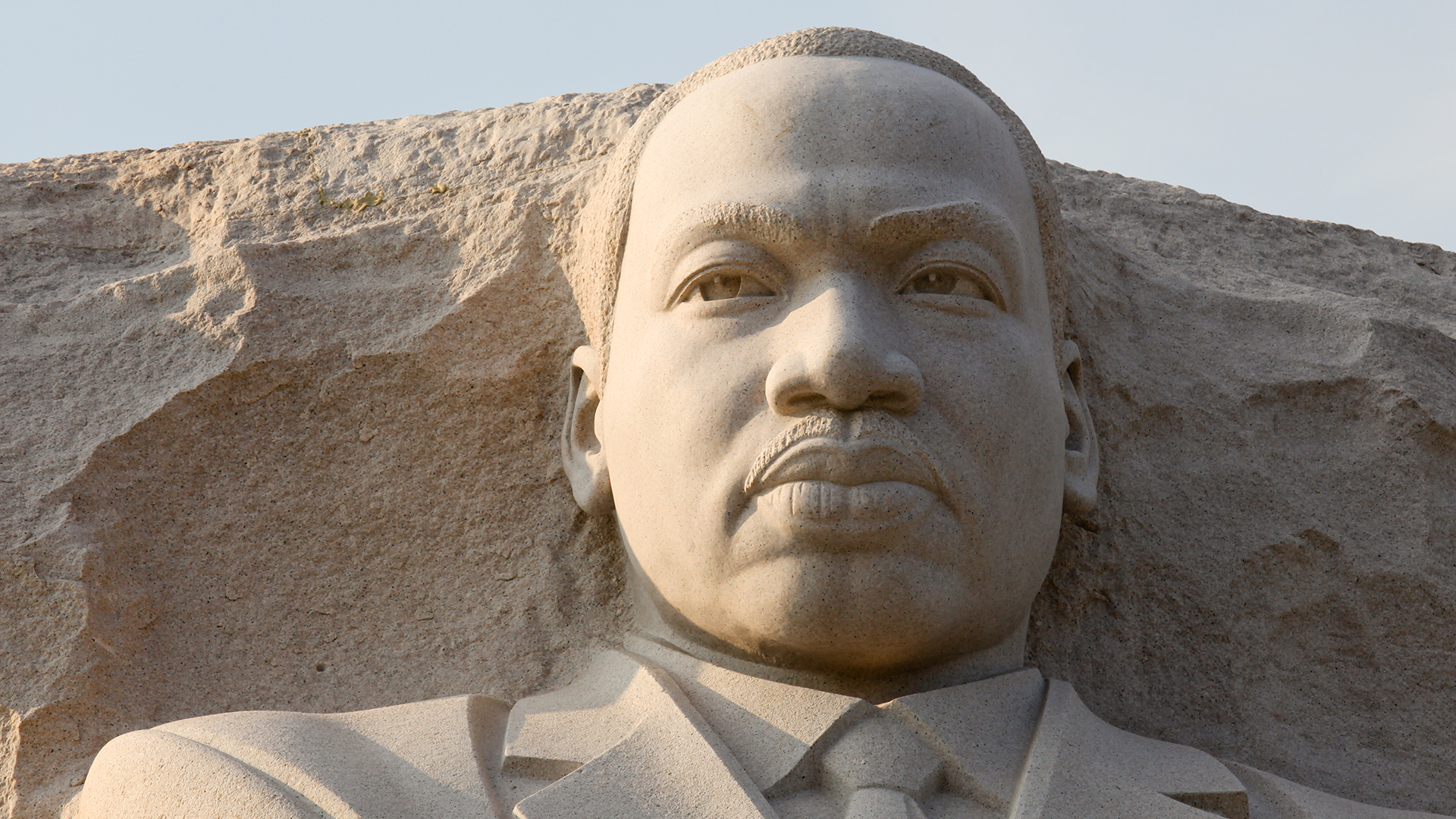
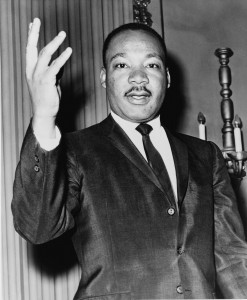
“Injustice Anywhere Is A Threat To Justice Everywhere.
– Dr. Martin Luther King Jr.
We Are Caught In An Inescapable Network Of Mutuality, Tied In A Single Garment Of Destiny. Whatever Affects
One Directly Affects All Indirectly.”
McDonough reflected on what he called a “galvanizing moment” for him and others—Dr. King’s assassination in Memphis, Tennessee on April 4, 1968. McDonough arrived in Memphis that week in order to attend a planned annual Holy Week retreat for the Christian Brothers, a Catholic religious order of which he is a member. He recalled that Memphis had been completely shut down by the National Guard and described the scene as eerie.
King’s death changed the focus of the retreat. “Our entire conversation became our commitment to social justice and civil rights,” McDonough said. When plans were announced for a march in downtown Memphis the following Monday, April 8, retreat participants were faced with a critical decision. Should they continue with their activities as planned, which included a number of speakers who had already been scheduled? Or should they join the march in solidarity with the civil rights cause?
After lengthy discussion, they decided to join the marchers. Speakers at the march included King’s widow Coretta Scott King, and King’s close associate Ralph Abernathy. McDonough remembered that the marchers were surrounded by National Guard troops, and walked in rows of eight across. “We embraced. We held each other’s arms. We had to stick together,” McDonough said. The amazing thing, he said, was that “you feel like your life is changing while you’re walking.”
Watch this extended ABC News report from the march in Memphis honoring Martin Luther King, April 8, 1968.
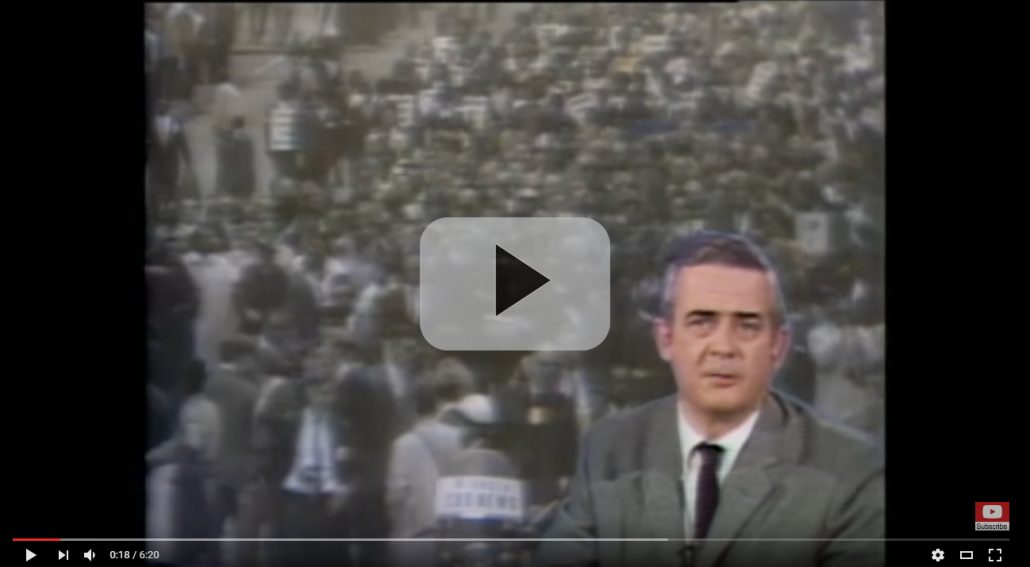
After King’s assassination, McDonough left his teaching position at a college preparatory school and founded a school in the inner city of St. Louis, along with four other Christian Brothers. “We lived in a tenement house because we wanted to immerse ourselves with the poor,” he recalled. McDonough has spent the four-and-a-half decades since working on behalf of the disadvantaged in a variety of roles, and today sees personal fulfillment in his relationships with the family members of Mercy Home’s young people.
McDonough made the annual pilgrimage to St. Louis for years to hear how Dr. King’s example speaks to his own ministry today. And he advises anyone to challenge themselves to see life from the point of view of another. “Just go out of your comfort zone, and go sit in a space where you would not normally go. And then listen,” he said.
“It’s not much, but it’s the way I got started.”
Learn about the beginning of Mercy Home for Boys & Girls and our founding fathers who saw a need for...
March 18, 2024
Comments